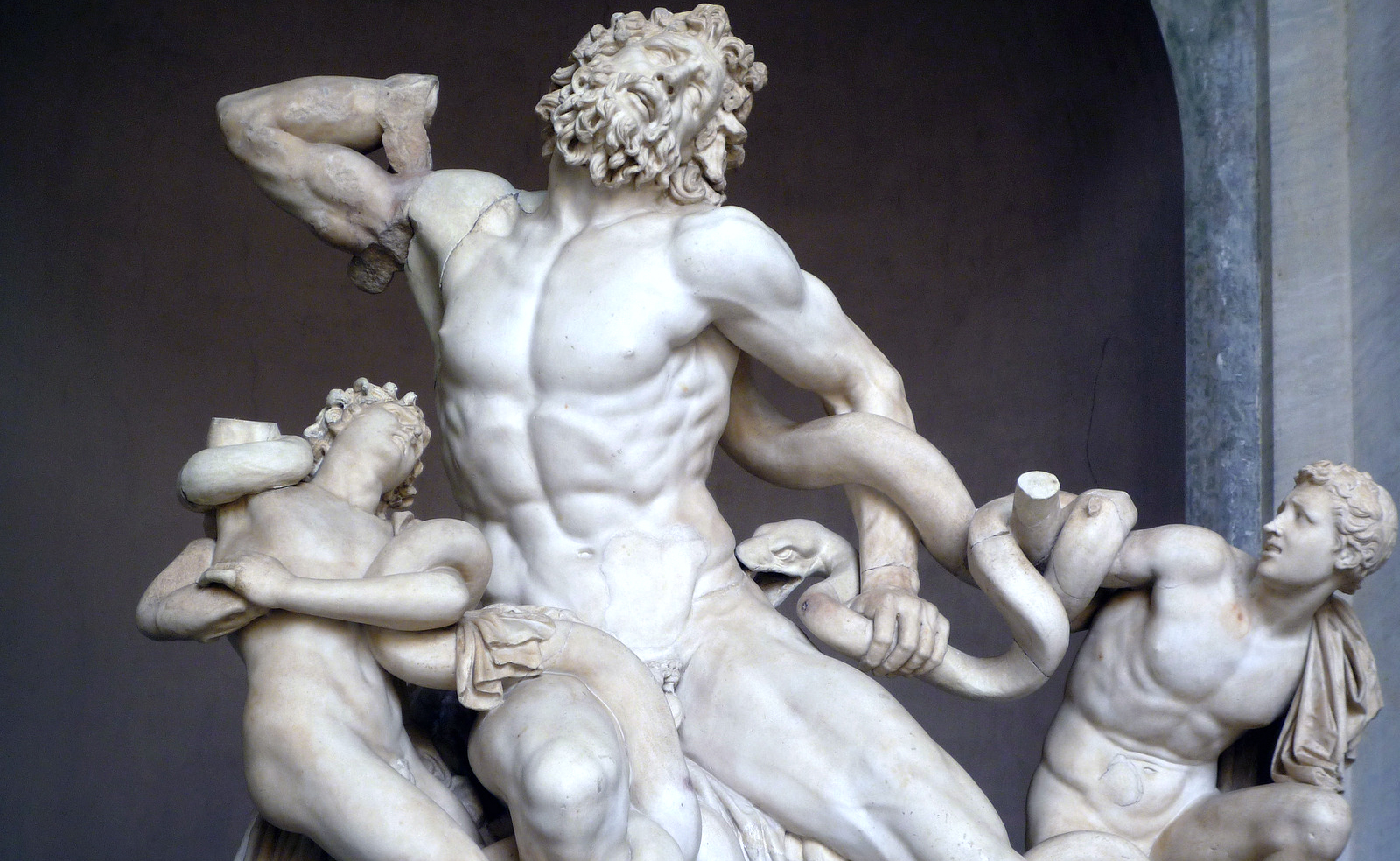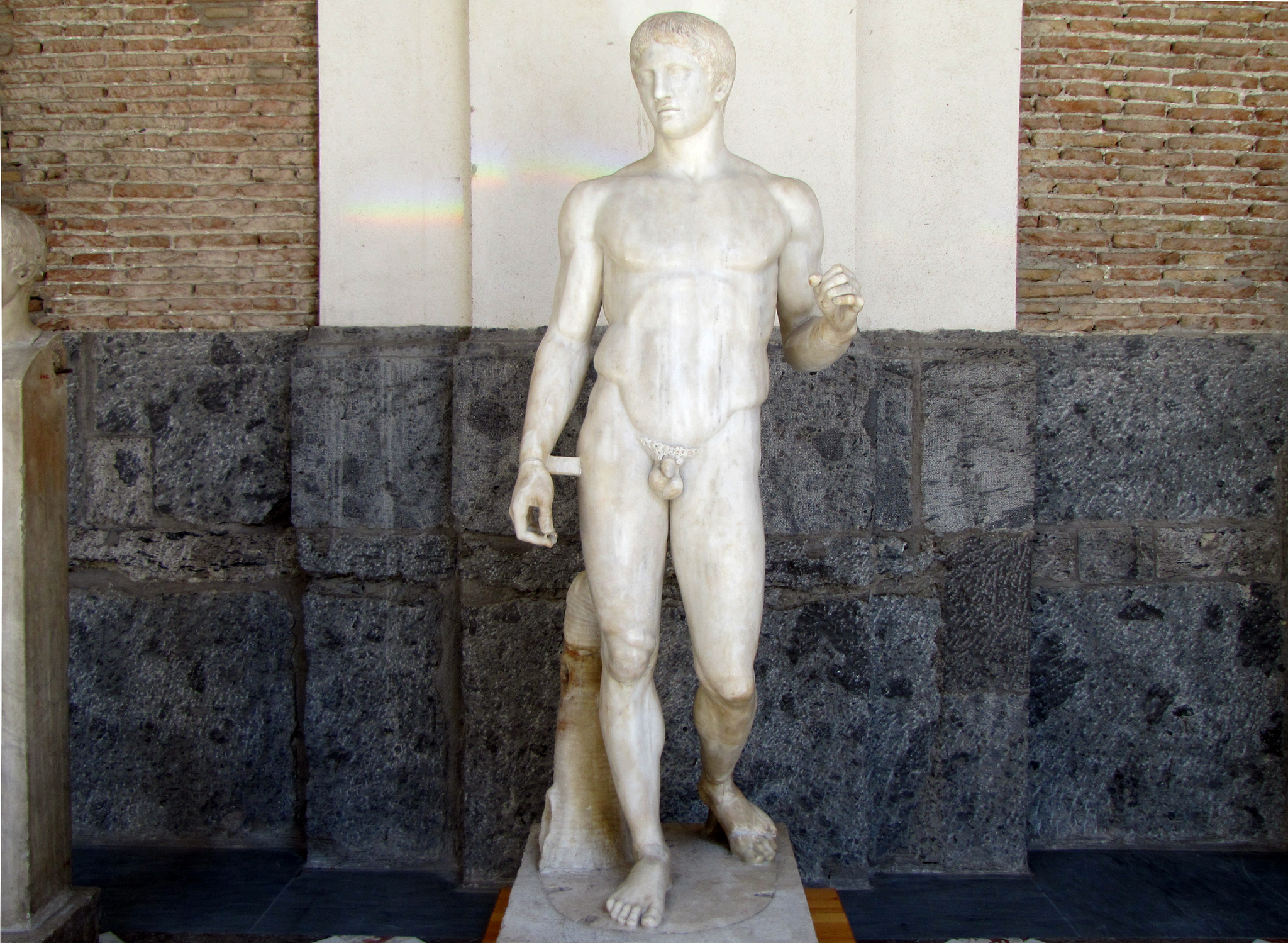What Are The Characteristics Of Classical Greek Art
Painters and sculptors attempt to reveal the human body in movement or repose exactly as it appears to the eye. Rows of columns supporting a horizontal entablature a kind of decorative molding and a.

Historical Artistic Developments Of Greece S Hellenistic Period Video Lesson Transcript Study Com
Its most characteristic element is the use of columns in one of three styles known as orders.

What are the characteristics of classical greek art. Characteristics This Early Classical style of Greek art which was dominant till about 450 is also known as the Severe style and with reason. The Classical Period - Forms of Art. Greek architecture shows the same concern with harmony and proportion.
Classical art is perhaps most notable for its perfection of the human form in sculpture. If the purpose of classical art was the glorification of man the purpose of Byzantine art was the glorification of God. The Doric the Ionic and the Corinthian.
While Classical Art is noted primarily for its sculpture and architecture Greek and Roman artists made innovations in both fresco and panel painting. The Classical Period - Forms of Art. During this period artists begin to expand the formal aesthetic boundaries while they worked in expressing the human figure in a more naturalistic manner.
Although many Greek pieces are now lost Roman copies and written records from both Greek and Latin tell the. Representation of proportionality and balance in the works of art that contribute to highlight the concept of aesthetic perfection. In place of the nude the figures of God the Father Jesus Christ the Virgin Mary and the saints and martyrs of Christian tradition were elevated and became the dominant - indeed almost exclusive - focus of Byzantine art.
The Classical Period - The Height of. The essential characteristic of classical Greek art is a heroic realism. The art of the Classical Greek style is characterized by a joyous freedom of movement freedom of expression and it celebrates mankind as an independent entity atomo.
The Parthenon 447-432 BCE Apollo Belvedere Roman copy c. Distinctive pottery that ranks as art was produced on some of the Aegean islands in Crete and in the wealthy Greek colonies of southern Italy and Sicily. Roman copy 120-50 BCE of original by Polycleitus Doryphoros Spear-Bearer c.
Murals Painting on a wall or ceiling. Greek Culture The Roman Empire. It is not of practical and realistic character but decorative.
Fundamental characteristics of Greek art. It repudiates conscientiously the decorative detail of much sixth-century sculpture. The columns became more slender and the entablature lighter during this period.
The columns like many other elements of Greek architecture represent the translation into stone of elements of wood construction. Important Art and Artists of Classical Greek and Roman Art and Architecture. Attained a manner of representation that conveys a vitality of life as well as a sense of permanence clarity and harmony.
440 BCE 120-50 BCE This work depicts a nude muscular warrior as he. In the mid-fifth century BCE the Corinthian column is believed to have made its debut. What are the characteristics of classical art.
Classical Greek Art Statue of Zeus at Olympia Statues were often painted and this was seen as independent of the sculpting itself. Classical Greek Architecture Overview During the Classical period Greek architecture underwent several significant changes. The emphasis will be on people of unusual beauty or moments of high and noble drama.
Paintings on vases evolved from geometric designs to representations of human figures often illustrating epic tales. Greek artists of the fifth and fourth centuries BC. Artists used bold colors to accentuate the hair clothing and eyes of the subject but left the skin in its stone form.
The temples of classical Greece all shared the same general form. During the Archaic period Greek art became less rigidly stylized and more naturalistic. The Charioteer of Delphi the Riace Warriors and the Artemision Bronze all display the sculpting characteristics of the Early Classical Severe style while also demonstrating the characteristics of bronze sculpting including the lightness of the material and liveliness that could be achieved.
By the later Archaic and early Classical period however the two great commercial powers Corinth and Athens came to dominate. Metal adornments and jewelry were added as well. Flowering of an aesthetic idealism that seeks to represent an idyllic vision of beauty.
Polykleitos of Argos was particularly famous for formulating a system of proportions that achieved this artistic effect and allowed others to reproduce it.

Timeline Of Ancient Greek Art Sculpture
Classical Art And Modern Dress Essay The Metropolitan Museum Of Art Heilbrunn Timeline Of Art History

Laocoon And His Sons Ancient Greek Art As A Model For Cultural Identity The Thinker

Ancient Greek Art Facts Architecture Projects History

Ancient Greek Art Facts Architecture Projects History
1 Greek Gods And Goddesses From The Early Classical Period By Sabine Schmalbeck
Classical Art And Modern Dress Essay The Metropolitan Museum Of Art Heilbrunn Timeline Of Art History

Classical Greece The Golden Era Ca 480 323 B C

Introduction To Ancient Greek Art Article Khan Academy
1 The Male Figure In High Classical Greek Art Striving For Perfectio By Jackson T Goode

The Early Classical Period Boundless Art History

Timeline Of Ancient Greek Art Architecture

Introduction To Ancient Greek Art Article Khan Academy
Retrospective Styles In Greek And Roman Sculpture Essay The Metropolitan Museum Of Art Heilbrunn Timeline Of Art History

Timeline Of Ancient Greek Art Sculpture

Ancient Greek Democracy History

Timeline Of Ancient Greek Art Architecture

0 Response to "What Are The Characteristics Of Classical Greek Art"
Posting Komentar